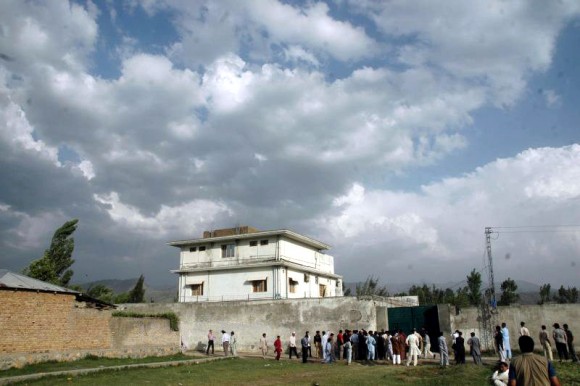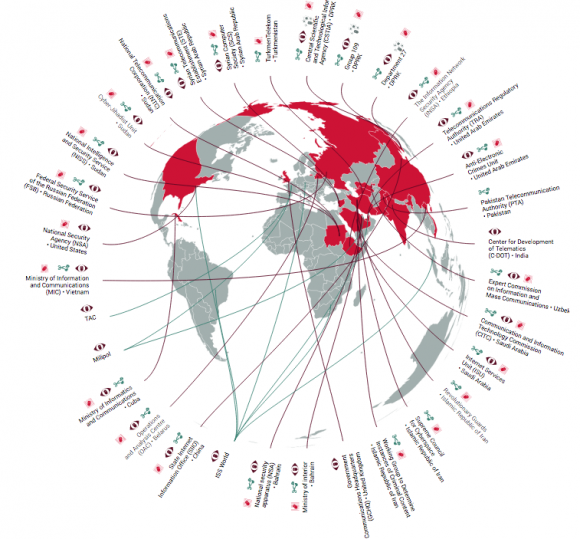If you quickly survey the media coverage and political rhetoric surrounding the Ukraine crisis, you find there is nothing easier than to condemn Russia for its opportunistic and illegal incursions into Ukraine’s sovereign territory of Crimea. And this is correct: it is very easy to see these acts as unfair and unlawful. Russian troops, deceitfully hiding identifying marks, occupied Ukrainian police and military posts and basically took control of the territory before pushing for a referendum. That the referendum was strongly in favor of Russia is a separate issue. (If the U.S. did what Russia did, non-interventionists here would no doubt condemn it.)
Since it’s so easy to condemn these Russian moves, Americans, quick to take their government’s side, have whitewashed the very real problems with the new U.S./Western-backed regime in Kiev.
It hasn’t been a complete whitewash. You can find honest acknowledgement in the mainstream. In Foreign Policy, for example, Andrew Foxall and Oren Kessler write, “The uncomfortable truth is that a sizeable portion of Kiev’s current government — and the protesters who brought it to power — are, indeed, fascists.”
Ukraine is home to Svoboda, arguably Europe’s most influential far-right movement today…Party leader Oleh Tyahnybok is on record complaining that his country is controlled by a “Muscovite-Jewish mafia,” while his deputy derided the Ukrainian-born film star Mila Kunis as a “dirty Jewess.” In Svoboda’s eyes, gays are perverts and black people unfit to represent the nation at Eurovision, lest viewers come away thinking Ukraine issomewhere besides Uganda.
Svoboda began life in the mid-90s as the Social-National Party (a name deliberately redolent of the National Socialist Party, better known as Nazis), with its logo the fascistWolfsangel. In 2004, the party gave itself an unobjectionable new name (Svoboda means “Freedom”) and canned the Nazi imagery, and in the subsequent decade has seen its star swiftly rise.
Today, Svoboda holds a larger chunk of its nation’s ministries (nearly a quarter, including the prized defense portfolio) than any other far-right party on the continent. Ukraine’s deputy prime minister represents Svoboda (the smaller, even more extreme “Right Sector” coalition fills thedeputy National Security Council chair), as does the prosecutor general and the deputy chair of parliament — where the party is the fourth-largest. And Svoboda’s fresh faces are scarcely different from the old: one of its freshmen members of parliament is the founder of the “Joseph Goebbels Political Research Centre” and has hailed the Holocaust as a “bright period” in human history.
The new government in Ukraine, as the FP report notes, is chalk full of Svoboda members. The video below depicts Svoboda MPs and their lackeys attacking the head of Ukraine’s state TV company and demanding he resign. It looks like a scene of mafia bullying from a Martin Scorsese film.
Despite this, U.S. commentary largely hails the democracy that has come to Ukraine post-Yanukovych. Writing in The National Interest, professor of political science at Colorado College David Hendrickson explains that “The big problem with this narrative is that the United States and its western and Ukrainian allies did in fact do something very wrong.”
They broke a vital democratic norm—to wit, that in democracies the transfer of power occurs as a result and in the aftermath of elections or, in extremis, impeachments. There is simply no consciousness in the West that the revolution was brought about by illegal means. Yet it most emphatically was so. Power was seized, not transferred. In this tit for tat contest with Russia, we have focused exclusively on the tit; we have just as resolutely ignored the tat that preceded it.
Now, I’m all for people tearing down their own oppressive governments. But when U.S. policy starts to side with unscrupulous right-wing factions in some other country that has nothing to do with us, it’s a big problem. U.S. policy is anti-Russia. It is Russia’s geo-political designs in its traditional sphere of influence in eastern Europe that Washington opposes. Translated into policy, as always, this manifests into unacceptable, nefarious, interventionist meddling. It needs to stop.





